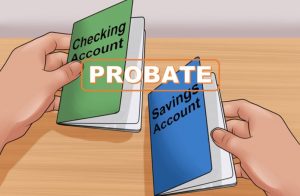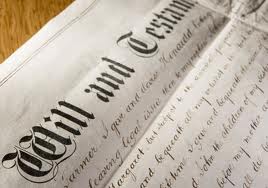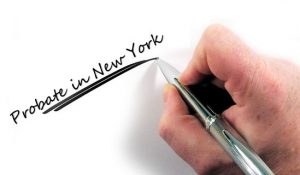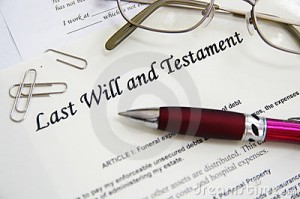The Impact of Traffic Violations on Auto Insurance Rates: How to Keep Your Premiums Affordable
If a motorist is convicted for traffic violations in New York State, this conviction can have a significant impact on your auto insurance rate. As a general rule, the more serious the violation, the greater the effect will be on your insurance premium. The DMV has a point system which sets forth and assigns points Read on…
Understanding the Point System: How Traffic Violations Affect Your Driving Record in New York
The DMV assigns points to various traffic violations. In sum, the more serious the traffic violation the more points that are assigned. For example, speeding violations have a graduated system of points based on how many MPH over the speed limit the motorist is convicted of. For example, if you are driving and convicted of Read on…
The Real Cost of A Speeding Ticket
The real cost of a conviction for a speeding ticket can be quite significant. We can start with the point system. The higher the speed that a motorist is convicted of, the greater the points. It starts with a three-point conviction if you speed up to 10 miles an hour over the speed limit and Read on…
Five New York Traffic Laws Drivers Commonly Ignore
There are certain laws under the New York Vehicle and Traffic Law (VTL) that drivers (intentionally or unintentionally) tend to ignore. The first such law is VTL 1225(c) (operating a motor vehicle while using a mobile phone) and its companion VTL 1225(d) (operating a motor vehicle- using a portable electronic device). Even with all the Read on…
What Happens If I Do Not Pay My Traffic Ticket?
There are various consequences that can occur if a motorist does not pay their traffic fines within the timeframe proscribed by the Court or traffic agency. Before June of 2021, in New York State if a motorist did not pay their traffic fine on time, the Court had the discretion to issue a suspension notice, Read on…
The Consequences of A Reckless Driving Charge
Under the New York Vehicle and Traffic Law (VTL), a charge of Reckless Driving pursuant to a VTL 1212 is an unclassified traffic misdemeanor. In short, this is a criminal charge, not a mere traffic violation. The consequences of such a conviction can be extensive, for one’s driving record, insurance rates, employment prospects, and if Read on…
Probate Vs Non-Probate Assets: Understanding The Difference
Quite often, clients may not be aware that only certain assets have to go through probate. The probate proceeding is to admit a Last Will and Testament in New York as valid and conferring upon the Executor the rights and duties pertaining thereto. Let’s first discuss non-probate assets, or what can be commonly referred to Read on…
How Do I Remove A Trustee For Violating His Or Her Trust Duties?
The Surrogate’s Court Procedure Act (SCPA) sections 711 and 719 set forth the various grounds for the removal of a trustee (or executor). The procedures may involve the removal of the trustee with process (petition to Court with service of citation upon Trustee) or without process (no citation to issue). Pursuant to SCPA 711, the Read on…
How Do I Access A Deceased Person’s Bank Account?
The question of how to access a deceased person’s bank account is a broad-based question, but is certainly one that people ask quite frequently and therefore merits a blog posting. The issue of access for a decedent’s bank account comes down to how the bank account is titled. In the context of a checking or Read on…
Tips For Overwhelmed Executors
Quite often, one assumes the role of executor (or administrator) for an estate without realizing many of the complexities associated with being appointed a fiduciary of an estate by the Surrogates’ Court. I usually explain to clients that being an executor of an estate is no different than being a CEO for a corporation. You Read on…
How Can Someone Become The Legal Representative Of An Estate For A Deceased Person?
The duty to handle the property of a deceased person is given to the Personal Representative, who was previously known as the executor. All matters regarding the deceased’s business and finances, including finishing, filing latest tax returns, and dividing assets among the descendants are handled by the Personal Representative. A PR can only be appointed Read on…
What Happens If A Will Beneficiary Passes Away?
New York estate law has adopted and implemented an anti-lapse statute. This law is designed for situation where the beneficiary under the terms of a Will dies before the person who executed the Will, known as the testator. The anti-lapse statute was enacted to balance the equities of the wishes of the testator versus the Read on…
How To Avoid Probate On Bank Accounts
There are various methods by which one can avoid having their assets await the outcome of a probate proceeding. This time frame can increase in the event that one of the interested parties to such a proceeding decides to contest the will. One of the simpler assets that should always be structured to avoid probate Read on…
Estate Administration: What To Expect When Settling An Estate
The question as to what to expect when settling an estate cannot be simply answered in one blog. But there are some factors to consider if you are appointed as a fiduciary of an estate. The first key question is whether the decedent had a Will or not, and if there is a Will, you Read on…
Does Having a Joint Account With My Spouse Help Avoid Probate If One of Us Passes Away?
It should be noted that there are numerous assets that can be deemed testamentary substitutes, meaning that due to the nature of ownership or the beneficiary scheme, these items may not be covered under the terms of the will. For the most part, if an asset is owned exclusively by the testator-decedent (person who died) Read on…
How to Keep Property Out of Probate in New York
It should be noted that there are numerous assets that can be deemed testamentary substitutes, meaning that due to the nature of ownership or the beneficiary scheme, these items may not be covered under the terms of the will. For the most part, if an asset is owned exclusively by the testator-decedent (the person who Read on…
If I Die Without a Will, Who Will be Appointed as Administrator of My Estate?
In prior blogs, I have discussed what happens to your estate if you die “intestate”, or without a will. Now I shall discuss who will be appointed an administrator to oversee the management of your estate if you die without a will. The Surrogates Court Procedure Act, more particularly, SCPA 1001, sets forth the priority Read on…
If I Am the Executor of an Estate, Should I Have the Checkbook or Should My Lawyer?
Generally speaking, it is the responsibility of the fiduciary appointed by the Court (i.e. executor, administrator) to be in charge of the estate bank accounts. Banks and financial institutions will need to see certificates of Letters Testamentary which grant the authority to the executor to conduct estate business, including the ability to open an estate Read on…
How Can An Estate Litigation Attorney Help Me Contest An Improperly Executed Will?
There are essentially four categories of objections that an interested party can make if they are going to object to a Will being admitted to probate. I will give a cursory review of the basis for said objections. The first basis to object to a Will being offered for probate in the Surrogate’s Court is Read on…
What Is The Difference Between Probate And Administration Proceedings?
The process of admitting a valid Will is referred to as probate, while a similar process known as administration, occurs when a decedent dies without a will (“intestate”). The individual named in the decedent’s Will (and who is often the petitioner in a probate proceeding) is the proposed executor, who after the will is admitted Read on…








